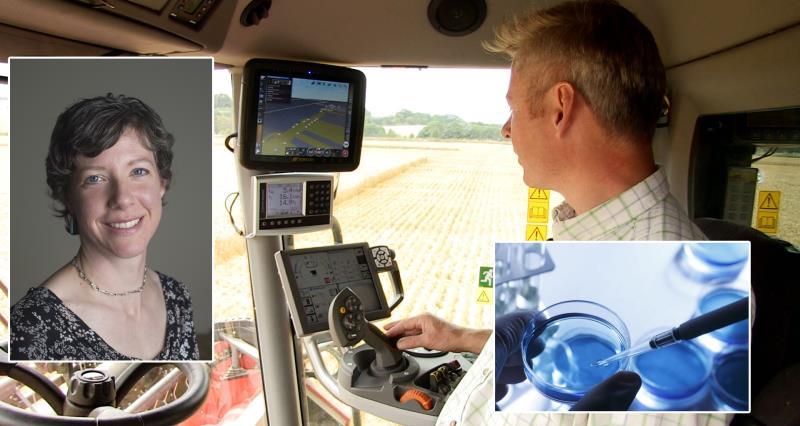She writes:
As the biggest organisation representing British farmers, the NFU is having to put a great deal of resource into Brexit. NFUonline has a dedicated channel all about farming and the EU, and efforts are currently focussing on our most extensive member consultation yet, asking farmers and growers what they think UK farming policy should look like outside the EU.
We’ve even created a brand new role of Director of Trade and International Policy. The years ahead will involve complex and thorny policy development to make sure British farming can thrive and contribute fully in the post-Brexit world.
Never mind the current geo-political turmoil, the history of modern farming has been all about innovation, competition and regulation, and farmers have continued to feed the nation through testing times and periods of dramatic change.
Against this backdrop, scientific advances have enabled farming to overcome production challenges, often with quantifiable impact despite long lag times. The agricultural research landscape itself has shifted significantly, with periods of damaging underinvestment, contributing to stagnation in yields finally recognised in the Government’s 2013 Agri-tech Strategy.
In this new era we are entering, there is no doubt that British farming will need all the solutions science can offer. While many of us working in science and in farming were convinced that we’d be better off in the EU, now we have to work out how we can be as well off as possible outside it.
Many have talked about the threats and uncertainties Brexit brings but there will also be opportunities, and now is the time for us to forge a system that works.
Members: Have you taken part in our Brexit consultation? Click here to make your voice heard. (You'll need to login).
In testing economic times, anyone receiving money from Government has to show that there will be some kind of return on that investment. The agriculture sector is of significant value to the UK economy, and not just primary production itself as the basis of a £108 billion agrifood industry.
The ‘agri-tech’ sector also includes engineering, precision tools, veterinary medicines, feed, crop protection and nutrition, seeds, genetics, computing, energy generation, infrastructure and machinery.
It has been estimated to be worth £14.3bn, with several sectors growing more than 20% in the five years from 2008. While farming activity itself is the biggest contributor, a recent Government report shows that the associated technologies account for a third of output. If current interest and investment is anything to go by, tech companies will account for an increasing proportion of the growth of the agriculture sector between now and 2030.
A strong and growing domestic economy is something governments of any colour wish for, even if their views on how to achieve it are different. A UK outside of the EU is going to need this growth with knobs on, and will also need to demonstrate to companies and governments overseas that here is a place to invest.
This is clearly an opportunity for farmers and for the wider agri-tech and agri-science community.
And it is also an opportunity for UK policy-makers and regulators to re-affirm and indeed strengthen their commitment to both the Agri-Tech Strategy and to science-based regulation. In areas such as crop protection and biotechnology, an anti-technology approach and misguided interpretation of the precautionary principle within EU institutions has damaged the competitiveness of the bloc.
The UK has often fought against this, so now is our chance to get it right. Agri-tech companies need legal certainty and an enabling legislative environment to invest in R&D. One way to repair the damage could be adoption of an innovation principle as part of a pragmatic, risk-based regulatory system.
Collaboration is everything in science (and it should be in policy too, in my view, though silos also seem to be popular!), and in this brave new world building genuine collaborations between science, farming, the agri-tech sector and policy makers, has to be the way to establish the right systems and mechanisms to get us where we need to go.
